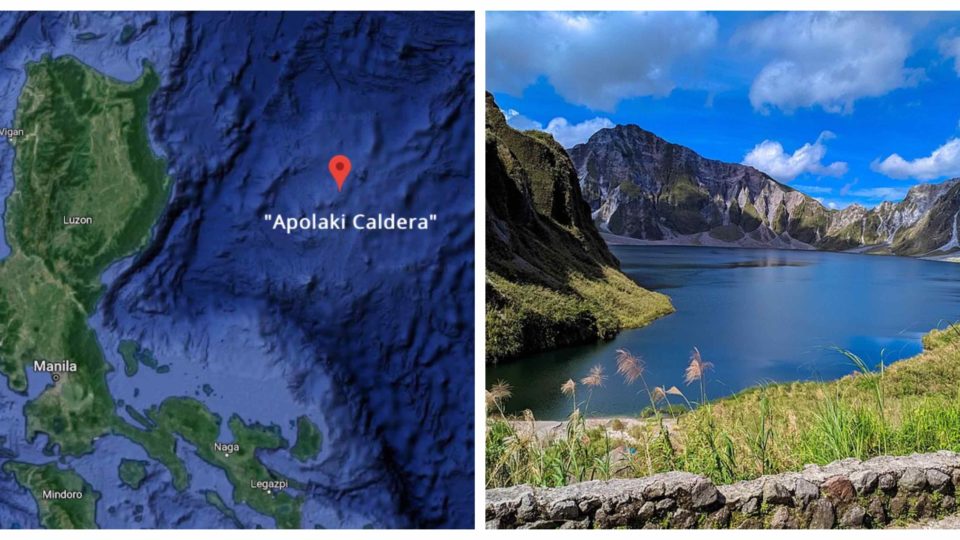The Philippines is officially home to the earth’s largest known caldera, according to a newly published study by marine geophysicist Jenny Anne Barreto that was shared by the University of the Philippines Marine Science Institute (UP MSI) yesterday.
The New Zealand-based Filipina scientist, along with co-authors Ray Wood and John Milsom, found the caldera in the Benham Rise — now officially known as the Philippine Rise — a seismically active underwater region in the Philippine Sea.
(Oh, in case you were wondering, a caldera is a crater-like feature that forms when an erupted volcano collapses in on itself.)
The gigantic depression, measuring some 150 kilometers in diameter, is more than twice the size of what is perhaps the world’s most famous caldera, the one beneath the United States’ Yellowstone National Park, home of the geyser Old Faithful.
“For comparison, Earth’s largest calderas, like the Yellowstone, is only about 60 kilometers (km). The size [of the Philippine Rise caldera] is comparable to shield calderas on Mars (Olympus Mons; 80 km x 65 km) and Venus (Sacajawea; 150 X 105 km),” the UP MSI said.
Barretto and her co-researchers have named the massive formation “Apolaki Caldera” after the Filipino mythical god of the sun and war.
The study — published on Oct. 20 and titled “Benham Rise unveiled: Morphology and structure of an Eocene large igneous province in the West Philippine Basin” — describes the Apolaki as having “features like a breached rim, intra-caldera benches, and a resurgent dome [that] indicate a multi-phase volcanic history consisting of both quiet and explosive eruptions.”
Read more Coconuts Manila articles here.




